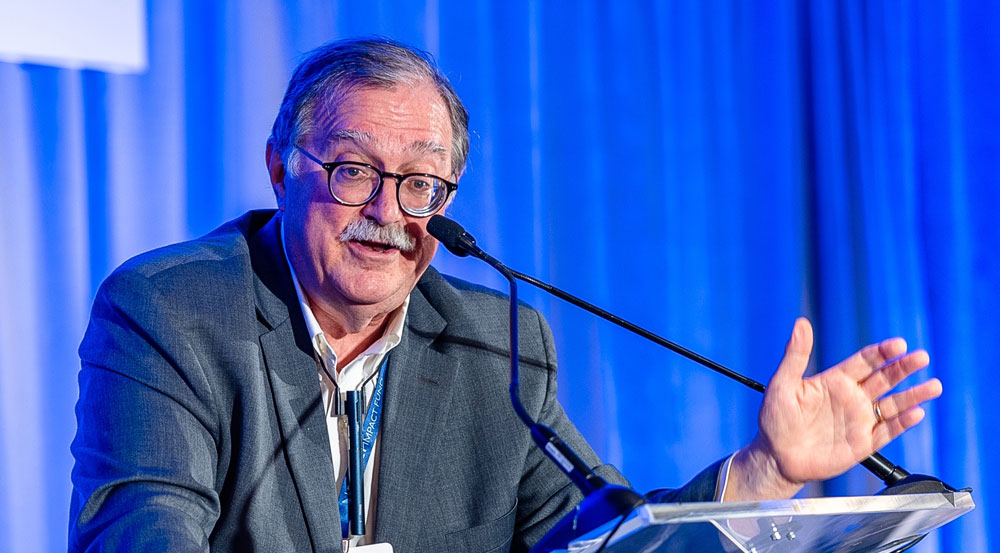Wilfred M. McClay holds the Victor Davis Hanson Chair in Classical History and Western Civilization at Hillsdale College. Dr. McClay has written several books, including his most recent, Land of Hope: An Invitation to the Great American Story. He served for eleven years on the National Council on the Humanities, the advisory board for the National Endowment for the Humanities, and is currently a member of the US Commission on the Semiquincentennial, which has been charged with planning the celebration of the nation’s 250th birthday in 2026.
In a speech entitled “American Exceptionalism and the American Citizen,” Wilfred McClay revisited the epigraph of his latest book, Land of Hope, which is a quote from novelist John Dos Passos that concludes:
That is why, in times like ours, when old institutions are caving in and being replaced by new institutions not necessarily in accord with most men’s preconceived hopes, political thought has to look backwards as well as forwards.
America is, by some measures, still a young nation. But after years of neglect in education, few are accustomed to looking backwards or forwards. Yet, to know the “backwards” of America is to know we’ve seen our fair share of trials, including the times we’re now in. Understanding our heritage is important to find reasons for the hope we need, like our predecessors, to move forward. It’s not just about knowing the facts of our history.
We have to recover the grandeur and sweep and audacity. In some respects, it’s the American story itself, its aspirational qualities, its shared memories, that are essential to our cohesion as a people. We need to balance critical thinking with appreciative thinking.
Having hope for our nation does not mean ignoring our failures. Indeed, “We wouldn’t experience them so sharply if we weren’t a land of hope. If we didn’t embrace that outlook, that doctrine, that aspiration.”
Professor McClay implored, however, that we not let distorted views of our history offered by the likes of Howard Zinn and the 1619 Project leave us culturally disinherited. We can acknowledge our shortcomings while continuing to embody the exceptionalism of our founding principles and to work for those principles and ideals in communities such as the Bradley Impact Fund.
Ultimately, Professor McClay sees his book, as the subtitle indicates, as “an invitation to the Great American Story. It’s meant to usher readers into a larger room, a larger gathering . . . of which they’re actually already members, even if they did not know it. . . The story is not merely someone else’s, it’s theirs too. If they wish to claim it.”


